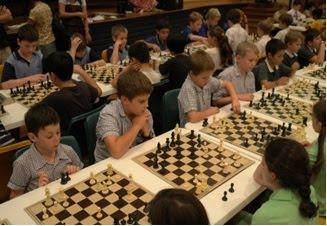
Tournament Preparation, Part 3: Processing Tournament Play
Hello! My name is Zach Kasiurak. I am a National Master living in Columbus, Ohio, USA rated 2294 USCF and 2223 FIDE. I am seriously pursuing my chess career and looking to improve rapidly as a player and coach.
I have created my blog to provide insight into ideas or themes I have discovered in my own games, games of my students, or in games of strong players. I hope to convey my personal struggles as well as successes in my own studies, my tournaments, and the coaching scene.
Tournament Preparation
In this series, rather than analyzing particular chess themes or motiffs, I will discuss methods for preparing, playing in, and processing tournament play. A proper mindset not only increases the chances of a good result, but the improvement that is possible from analyzing and seriously approaching each game. These methods come from my own experiences and may differ for each individual, however, I hope that these personal methods will provide usefullness in some degree to each reader!
Processing Tournament Play
1. Analyze Your Games
A proper analysis of your games is far and away the most important piece of studying for chess improvement. I would recommend seeking advice from strong players who have spent hours upon hours analyzing their own games. Figure out some techniques they employ and see what works well for you. I have a specific notebook dedicated to games in which I write down my analysis and detailed thoughts of each game. It helps me to reinforce my analysis and enables me to review my games before tournaments. Figure out what works for you as this is the most important process to throughly understand in order to improve rapidly as a chess player. Here is a brief outline of major points that should be covered in your own analysis:
- Opening Repair/Exposure to new ideas (Strong players' games)
- Collect and Highlight new and interesting ideas
- Identify your mistakes
- Try to analyze and calculate to the best of your abilities without the aid of an engine first! (Engines do the work for you!)
2. Developing a Study Plan
Analyzing your games is not particularly useful if you do not use the information you have discovered. Identifying the mistakes you make in your games is only half the battle. DO NOT dismiss your mistakes because every mistake has an underlying cause! You should prescribe yourself material based on the errors you discover in your thought process. For example, if you missed a tactic, do not be ashamed or plead temporary insanity. Find some material to address that specific type of tactic. Discovering the mistakes in your play is not useful if you do not attempt to address the problem!
As far as the actual creation of a study plan, try to limit your focus on openings and complete tactical exercises as regularly as is possible. Each invidual's optimal study plan differs greatly, however, identifying WHY mistakes occur in your games is a great place to start.
3. Create Goals
Goal orientation is a great way to stay on track towards chess improvement. Chess is at times very frustrating and often it is hard to see tangible short-term results. Set attainable goals for yourself in order to prove to yourself that you are improving. For example, immediately after your opponent moves identify his threat. This process builds your confidence and provides a sense of accomplishment. However, DO NOT set rating goals or result oriented goals. In my experience, it only adds unnecessary pressure and detracts from your own learning. Focus on playing well and the results and rating points will surely come!
Follow/Contact Me
Please don't hesitate to check out my links, comment below, or send me any questions!
Links:
Coaching Profile: http://www.chess.com/coach/zach-kasiurak
Twitter: https://twitter.com/ZachChess
Email: zkaz24@gmail.com
All the Best!
Zach
